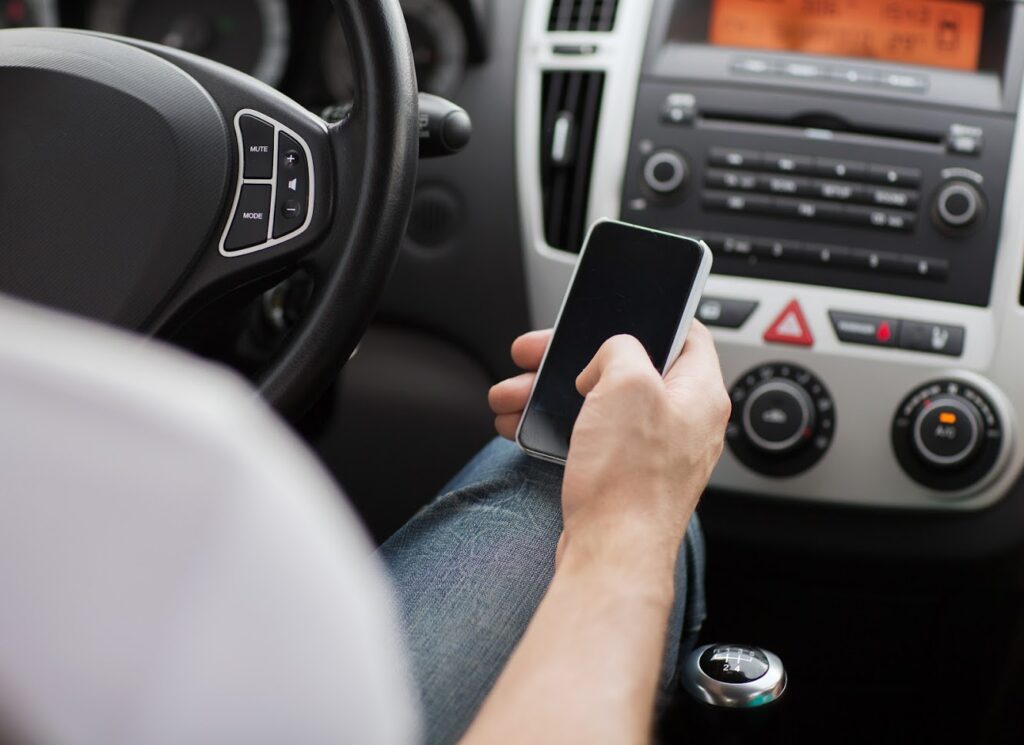Frequently Asked Questions About Distracted Driving Lawsuits

Distracted driving causes or contributes to over 1,000 injuries per day in the U.S. alone. Even a split-second distraction from the many potential hazards involved in normal driving can injure pedestrians, passengers, or other drivers. When such an event occurs, the injured party may seek restitution in court.
Whether you have sustained a personal injury due to someone’s distracted driving or you stand accused of injuring someone due to your own distracted driving, it pays to understand the factors and procedures involved in this kind of case. Take a look at the answers to these frequently asked questions on the subject.
What Constitutes Distracted Driving Under the Law?
A wide range of potential distractions can lead to auto accidents and associated injuries. Examples include operating the radio or other dashboard components, manipulating food or drinks instead of the steering wheel, talking on the phone, texting, dealing with unruly passengers, or driving under the influence.
Every state has its own legal definition of distracted driving. The State of Louisiana regards any activity that takes your hands away from the steering wheel, your eyes away from the road, or your mind away from your driving constitutes distracted driving. Its laws prioritize phone use and texting as distracted driving offenses.
Texting may represent the most serious form of these distractions since it occupies the eyes, hands, and mental focus simultaneously. In the few seconds of distractions created by a simple text message or response, a car moving at 55 miles per hour can travel the length of a football field.
What Strategies Do Plaintiffs Pursue in Distracted Driving Cases?
If you have suffered injuries from someone else’s distracted driving, your case must show that the driver’s activities made normal safe driving habits impossible, thus causing the collision or other accident. You must also show that the incident caused injuries that resulted in significant tangible and intangible losses.
If electronic device usage played a role in the distracted driving, your attorney may seek documentation of that usage. This evidence may take the form of phone or text records contained in the device or submitted by the device’s service provider. Evidence of food or beverage consumption in the car may also support your case.
Eyewitness and expert testimony can support your case. Regardless of whether distracted driving factored into the accident, eyewitnesses may attest to erratic or unlawful driving on the defendant’s part. Accident investigators and medical experts may explain in detail just how the defendant’s driving caused the injuries.
What Strategies Do Defendants Pursue in Distracted Driving Cases?
If you must defend yourself against accusations of distracted driving in a personal injury case, your attorney may try to cast reasonable doubt upon your direct responsibility for the incident. For instance, your defense may establish that someone else in your car actually drove the vehicle or created a distraction.
Even if you engaged in distracted driving in the course of the accident that produced the injury, your attorney may present evidence that you did not actually cause the accident. Slippery road conditions, confusing or obscured signage or the reckless actions of another driver may have actually caused the accident.
Defendants may provide their own expert witnesses to counter or weaken the arguments offered by the plaintiff’s expert witnesses. Your attorney may attempt to show that your experts carry more authority and expertise than those on the other side, or simply that the plaintiff’s expert testimony leaves room for reasonable doubt.
What Damages Can Injured Parties Receive in Distracted Driving Cases?
Louisiana places maximum damages caps only on medical malpractice lawsuits, meaning that auto accident plaintiffs can request whatever damages will adequately compensate for lost income, medical bills, and pain and suffering. Your attorney can help you calculate these losses.
The state’s shared-fault rules may limit the actual award. For instance, if the court finds the defendant only 60 percent responsible for the accident, you’ll receive only 60 percent of your requested damages.
If you need to file a distracted driving accident lawsuit or defend yourself against such a lawsuit, The Wenck Firm can help you get through this challenging time. Contact us today to schedule a consultation at either of our locations.
Texting while driving (Louisiana Revised Statute 32:300.5) – No person shall operate any motor vehicle upon any public road or highway of this state while using a wireless telecommunications device to write, send, or read a text-based communication. It is a moving violation and a primary offense.
This Blog/Web Site is made available by The Wenck Firm, LLC, for educational purposes. It provides general information and a general understanding of the law, but does not provide specific legal advice. By using this site, commenting on posts, or sending inquiries through the site or contact email, you confirm that there is no attorney-client relationship between you and the Blog/Web Site publisher. The Blog/Web Site should not be used as a substitute for competent legal advice from a licensed attorney in your jurisdiction.
